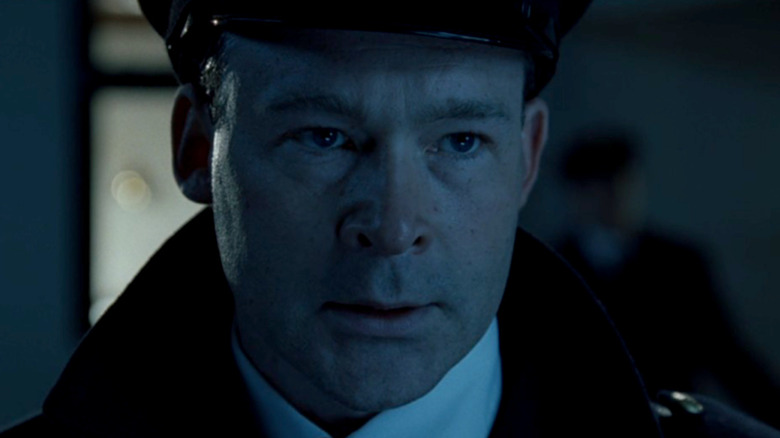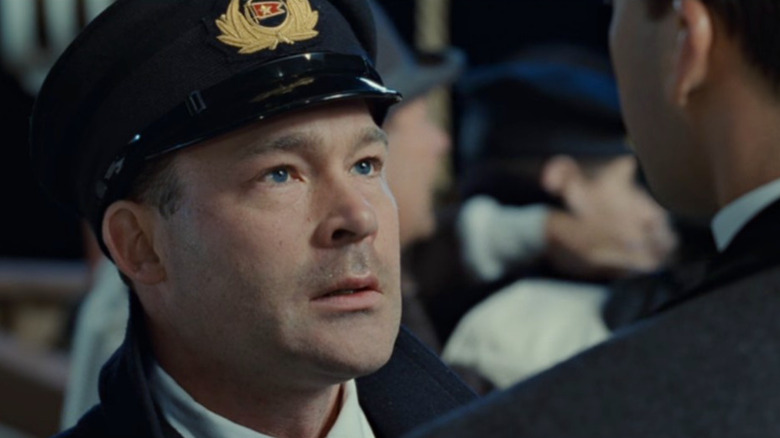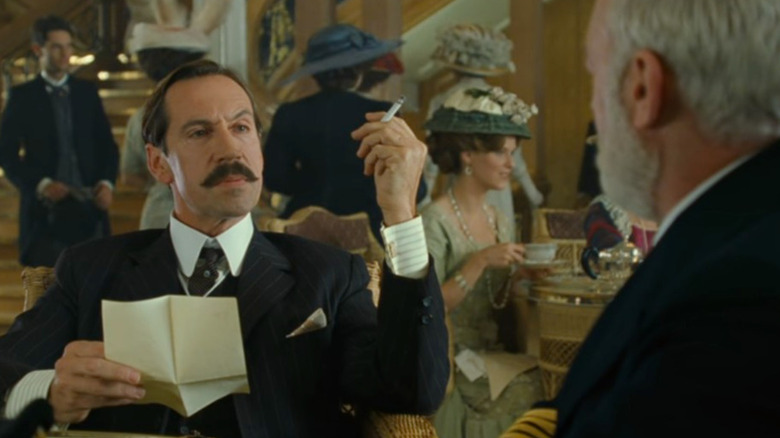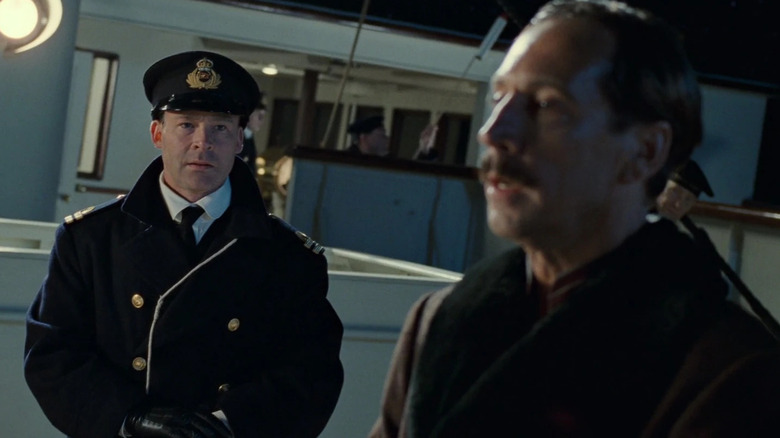James Cameron Regrets Getting 'Carried Away' With One Grim Titanic Scene
(To celebrate "Titanic" and its impending 25th-anniversary re-release, we've put together a week of explorations, inquires, and deep dives into James Cameron's box office-smashing disaster epic.)
One of the problems with making a work of fiction based on a real historical event is that, well, a lot of the people in it were real, and their living relatives might not be thrilled about your portrayal of them. Sometimes, even minor moments that most viewers wouldn't pick up on turn out to be a big problem, like when "Queen's Gambit" downplayed female chess champion Nona Gaprindashvili's career in a throwaway line and got sued for it. For a movie like "Titanic," based on a massive tragedy where the figures involved were put in tough situations with no easy choices, portraying someone inaccurately can lead to a much bigger, more prolonged backlash.
Such was the case for First Officer William Murdoch (Ewan Stewart), whose final scene ends on a bleak, not-particularly-noble note. Although he gets a somewhat triumphant moment when he throws a wealthy passenger's bribe back in his face, it's followed up by him shooting and killing a passenger in a moment of panic. Filled with regret and despair at the current situation, Murdoch then shoots himself in the head.
It's a dramatic moment for the film, but it wasn't appreciated by Murdoch's descendants. They maintained that Officer Murdoch definitely would not have shot himself, especially not while there were still lives to be saved. While there is decent evidence from first-hand accounts that one of the officers on the Titanic did something similar, choosing Murdoch for the moment had more to do with creating a dramatic movie than with any interest in accuracy.
'A little carried away'
James Cameron's thinking was that, regardless of what actually happened, picking Murdoch for the incident made the most sense for the story he was trying to tell. "Oh, the guy who is responsible for helming the ship, on his watch, he's the one who essentially ran the ship into an iceberg. Was he overcome by guilt? Was he trying to save as many people as he could but when the riot broke out he overreacted?' Who knows," Cameron explained in a 2017 interview. Cameron has since acknowledged that there was more than just good storytelling he should've considered:
"I think I got a little carried away with the narrative and was not sensitive to the impact that it might have had on the families. And this is the responsibility that one carries when you're making what's essentially a big docudrama because you're telling the story of something that really happened, and I did populate it with real people."
Ewan Stewart also expressed some regret over his portrayal of the character in the film, saying, "I'm ashamed to say it, really, now — I hadn't really given that a lot of thought, that I was playing a real person."
We'll never 100% know for sure, but most accounts support the idea that he was one of the most successful officers when it came to loading up the lifeboats and that he performed admirably throughout an impossible situation. "To many people, he is a Scottish hero," said one researcher. Following the movie's release, people from Murdoch's hometown in Scotland called on Cameron and the studio to apologize for the portrayal.
What about Ismay?
When talking about real people who were done dirty by the movie, however, you can't help but think of J. Bruce Ismay (Jonathan Hyde). Early in the film, we see him arrogantly pushing the captain to sail the ship faster, with the implication that this is (at least partly) what will lead to the Titanic's sinking later on. Later when the boat does sink, we see him sneak onto a lifeboat meant for women and children. Captain Murdoch seems disgusted when he sees what he's done, but doesn't stop him.
The movie doesn't seem to want us to outright hate Ismay for what he does in the end. Instead, the scene seems to ask the viewer, would you not be tempted to do the same thing in his situation? But he still doesn't come off well, with thousands of passengers drowning because of his hubris while he sneaks onto a lifeboat when no one's looking. In real life, there was little evidence that he ever pressured the captain to speed up (or that the captain would even listen if he did), and first-hand accounts from others on the lifeboat attested that there were no women and children nearby at the time, and he was explicitly ordered by an officer to get into the boat.
Apologies to Murdoch, at least
As with Murdoch, there's no way to know for sure what happened, but one can't help but wonder if the movie should've changed the names of these two characters. Doing so could've made it clear that they were loosely based on real people, without the moral problems that come with telling an audience that this is what a real person did. The average viewer would not have known nor cared that these weren't the real names of any people on board (just as no one cared that Rose nor Jack were not real people), and the families of Murdoch and Ismay wouldn't have to watch their ancestors be portrayed negatively in front of one of the largest audiences for any movie ever.
Yes, ideally viewers would understand that this is all a dramatization of events not meant to be taken as total fact, but considering how much effort the movie took to appear historically accurate, it's easy to see why the "it's just fiction" defense wouldn't be happily accepted by everyone.
For Murdoch at least, Cameron has apologized. "I think I have come to the realization that it was probably wrong to portray a specific person, in this case First Officer Murdoch, as the one who fired the weapon," he said in 2004. "First Officer Murdoch has a family and they took exception to that, and I think rightly so."



